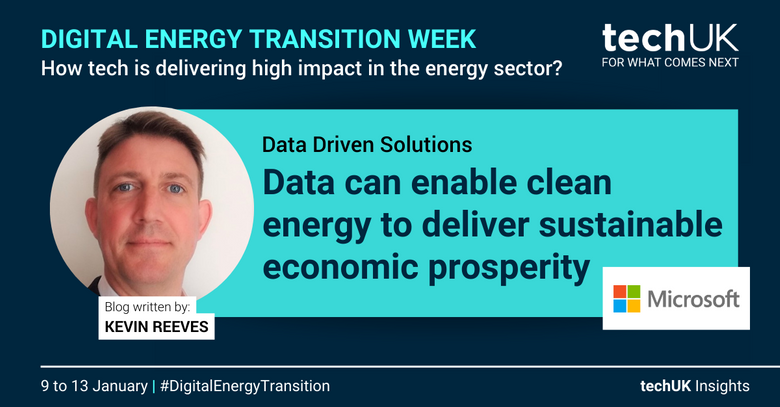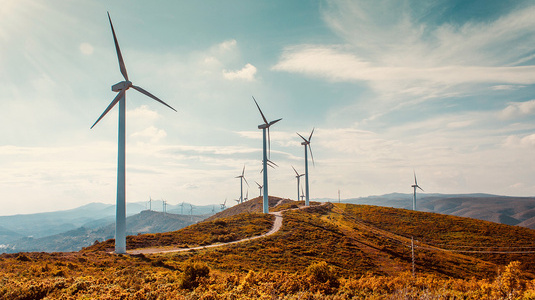How data can enable clean energy to deliver sustainable economic prosperity (Guest blog by Microsoft)

In the previous century, an abundant supply of hydrocarbons powered industrial development and gave rise to the modern economy, whose benefits underpin progress to this day. But as the world struggles to adjust to the impacts of climate change, it’s become clear that only clean energy can deliver a more sustainable economic model, and for that you need data.
The global economy is set to rely more on digital consumption and less on physical goods and services in the coming years. Both the digital economy and the industrial metaverse will require large quantities of reliable data simply to operate.
Just as early economic progress was determined by a steady supply of hydrocarbons, the fourth industrial revolution will stand or fall on its ability to exchange and manage data at industry scale.
Flexible systems to manage an intermittent supply
Energy from renewable sources such as wind tends to be intermittent. This presents a challenge to legacy energy systems, which were not designed to handle fluctuations in supply. To make these systems more flexible, high levels of data integration and automation are needed. For example, by enabling intelligent demand management, it becomes easier to balance the grid and maintain a reliable supply of energy to consumers.
Sharing data freely between market stakeholders is fundamental to this flexible 'whole system' approach. It’s also key to managing and accelerating the energy transition. Electricity generators need to know in near real-time what the profile of energy demand looks like. Energy retailers need access to those same demand insights to drive new commercial incentives for customers. These incentives can then be deployed to increase or reduce demand throughout the day as required.
Making shared data a requirement
Network operators have the job of balancing supply and demand. To do this effectively, they need access to free-flowing data from across the whole spectrum of generators, wholesale network operators, retailers and - increasingly - energy consumers themselves.
But is the market ready or able to deliver this unprecedented level of data-sharing and cooperation, in what is supposed to be a competitive environment?
Realistically, this seems unlikely. The only practical solution, therefore, is for regulators backed by policymakers to introduce structural reforms in the wholesale and retail markets that would move beyond calls for voluntary cooperation.
These reforms would need to create a legal obligation to share data among participants, on the grounds that the success of the energy transition depends on it. Without them, the potential costs of failure, both to communities and businesses, will continue to be side-lined or not taken fully into account.
Today we still have a 20th century grid, contorting itself to meet the interdependent demands of clean but intermittent renewables, growing demand, accessible and affordable energy for all, and energy security. We need a new 21st century grid that can seamlessly link demand and production, and this will only be possible with real-time, robust data
Sustainable solutions in the cloud
In the meantime, how can the private sector help accelerate the transition to a more sustainable energy system?
Microsoft is committed to delivering trusted, integrated, data-driven solutions to accelerate the energy transition. Microsoft Azure and Microsoft Energy Data Services enable energy companies to deploy cloud, data, and AI for improved operational efficiency. They also establish the digital foundations for a more sustainable, lower-carbon future in which shared data and industry-wide collaboration can flourish.
Learn more about Microsoft’s Cloud for Sustainability and other initiatives to accelerate your own journey to net zero.
Get involved with our work
All of techUK’s work is led by our members – keep in touch or get involved with our work on transport and infrastructure by joining our groups.




